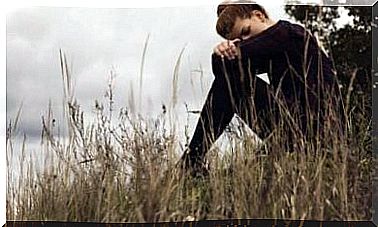Coping With Loss By Learning From It

Dealing with loss is possible. When we lose something or someone, behind all the pain, bewilderment and pride there is a lesson. A lesson that will heal us all on its own. Our understanding of loss is linked to the arbitrary interpretations of our ego. Depending on how we relate to our ego, we will view the loss as either bad luck or part of our destiny. Or as a situation we can learn from as we go through it.
As Charles Dickens once said, “I learn what to learn from every failure.” Read on and discover the best advice for dealing with loss with us.
When we go through difficult experiences that are difficult to process, none of us are prepared for this. The losses and failures themselves prepare us. Losses make us more complete and complete as humans and teach us important things about life, even if our ego has pinned its hopes on other things.
Sooner or later everyone has to deal with the loss of relatives, friends or partners. However, not wanting to face or accept the loss is the real problem. We know these things will happen and when they happen we will learn something from each of them. There is no doubt that many lessons will be learned, which are as valuable as they are painful. Dealing with loss is indeed an essential part of our lives.
Dealing with loss: how to come out stronger
Suffering is an aspect of life that cannot be eradicated, because the influence of chance or death is something that will always be with us. Without them life would not be complete. The pain of losing relatives and loved ones is part of the whole process of life. Otherwise life would not be life.
Acceptance is the key to coping with loss. So that the natural pain does not lead to a persistent and prolonged suffering that causes an inappropriate state of being.

In his wonderful book Man in Search of Meaning , Viktor Frankl shows our loss from a more humanistic and adaptive perspective. The way man accepts his destiny and all the suffering it brings adds a deeper and richer meaning to his life. Even under the most difficult of circumstances, it is possible to maintain your courage, dignity and generosity. If you forget or lose your human dignity, you become the most destructive animal of all animals.
It is often exceptionally difficult situations, such as the loss of a family member or the break-up of a relationship, that give us the opportunity to grow spiritually and transcend our limits. The one who loses faith in his future is doomed and in need of help. His life will be filled with physical and mental apathy.
What we really can’t afford to lose is ourselves. This should be our first and last priority and should be paramount in our lives.
Coping with loss: a learning process
What we learn when we lose something or someone is not always positive. We also need to learn from the negative aspects that loss leaves us with. And this is all part of dealing with loss. For example, in emotional turmoil, loss leaves an almost indelible mark on our ego. This continues to take its toll even when our feelings are no longer alive. Therefore, we must learn from the bad aspects of the loss. We need to focus on the good things that remain as a result of the whole situation.

From the moment we are born, we learn to own things and to stay close to what and who we love in order to find safety. Very few people help us to know what to do or feel when we lose a loved one or experience any other type of separation. When we experience the loss of a loved one, a relationship, a dream or something material, the main causes of the pain are the attachments and fears that we have assumed or generated throughout our lives.
In order to overcome the losses and come out stronger, we must focus on the positive things that these experiences can awaken in us. The most valuable thing about these kinds of experiences are the lessons they offer us. Lessons that will enable us to find the strength and desire to keep going in life.









